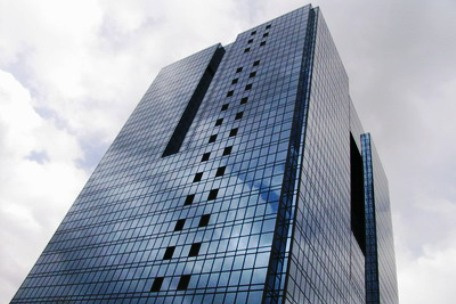Effective Diplomacy Needed to Confront Central Bank Sanction

IRD: For many analysts, the boycott of the Iranian Central Bank is as important as passing the Iran's dossier to the Security Council, hence the harsh reaction by Tehran. Iranian Diplomacy has interviewed Mohammad-Hossein Adeli, former president of the Central Bank and ambassador to London on the ramifications of the new fiscal restrictions enforced by Washington and London:
IRD: What is the stature of our central bank foreign trade and what impact does its boycott have on the Iranian economy?
HA: The importance of the central bank lies in two elements: its functions and its nature, that is, it is an institution belonging to an entire nation; thus, its immunity should be reasonably guaranteed. The Iranian Central Bank (ICB) has four main functions: 1. enforcing monetary policy through regulating monetary base and liquidity; 2. maintaining and managing the country’s resources; 3. receiving the largest source of Iran's revenue, the oil revenue; and 4. engaging in international trade and business. The boycott of the bank can be bypassed in some domains such as international trade, of course with a higher expense and more time, while the others may face serious disruption, in case of strict enforcement of sanctions.
IRD: Why did the Central Bank sanction pop up at this juncture? Isn’t it an abrogation of the international law?
HA: Well the reason should be asked from those who have imposed it. But one thing for sure is that the boycott of the ICB has revealed that Iran's enemies employ all tools to put pressure on the country, respecting no ethical and international constraints. Although the ICB is a state-run organization, it fundamentally belongs to the Iranian citizens due to its functions, just such as railways, power plants and grain storage silos belong to people. Therefore, such a boycott is just as extreme as bombardment of the public infrastructures. This step is not only unethical, but also frowned upon in the international law.
IRD: Why do the experts in pioneering countries in boycotting Iran's Central Bank hold different viewpoints about the decision? What are their arguments?
HA: They may have referred to the public nature of the bank. During a war, some condemn the bombardment of bridges, hospitals, silos, and the like, while some other even welcome civilian massacre. For example, in the World War II the US nuclear bombardment of defenseless Hiroshima and Nagasaki was later strongly criticized even inside the US. If one claims that the world has become more civilized from those times, there should be a limit for putting pressure on other countries. The ICB seem to be one of these off-limits’ domains which has unfortunately attracted the attention of radical politicians.
IRD: How can Iran minimize the possible consequences of the sanction?

